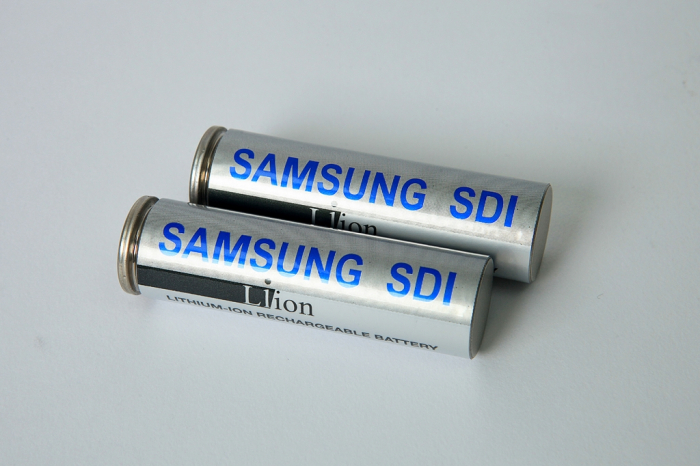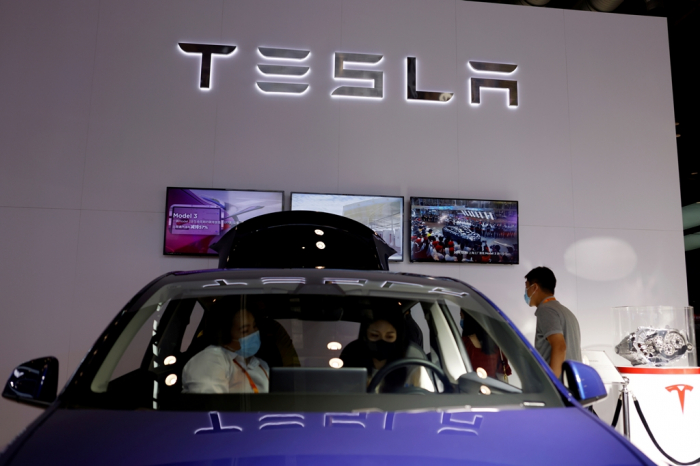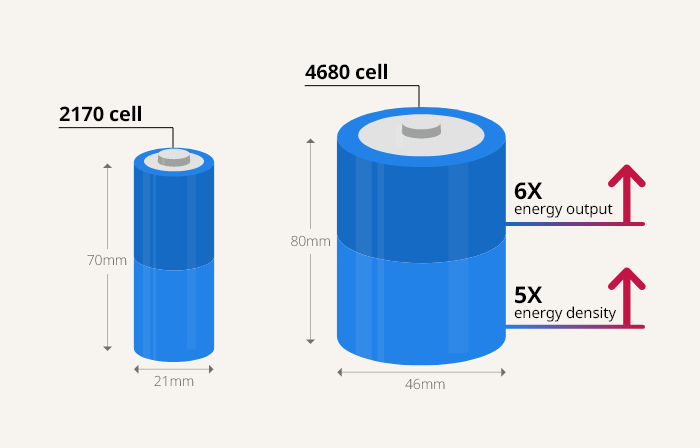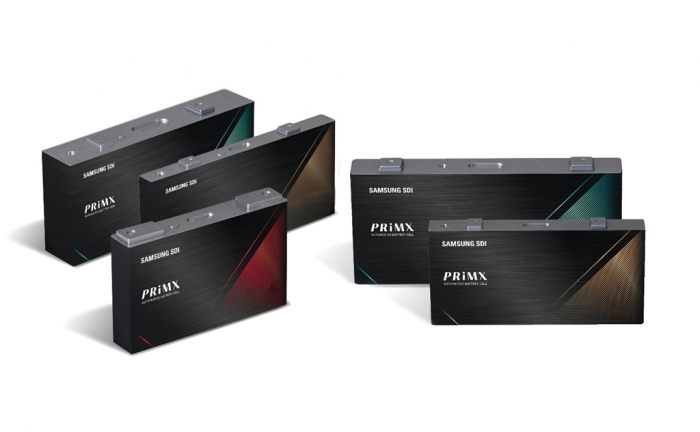Batteries
Samsung SDI to develop cylindrical batteries for Tesla, other EV makers
The development of next-generation cylindrical batteries will help Samsung expand its market share
By Jun 16, 2022 (Gmt+09:00)
3
Min read
Most Read
LG Chem to sell water filter business to Glenwood PE for $692 million


KT&G eyes overseas M&A after rejecting activist fund's offer


Kyobo Life poised to buy Japan’s SBI Group-owned savings bank


StockX in merger talks with Naver’s online reseller Kream


Meritz backs half of ex-manager’s $210 mn hedge fund



The battery-making unit of Samsung Group is currently expanding production lines for smaller batteries at its Cheonan plant, some of which will be converted to pilot facilities to make bigger batteries for electric cars, people familiar with the matter said on Thursday.
Samsung SDI is testing two types of large-size cylindrical batteries. One is the so-called 4680 battery, which is 46 millimeters in diameter and 80 mm in length, while the other one has the same diameter but is longer, the sources said.
By producing both types with minimal changes to production lines, the company will also be able to cut manufacturing costs, they said.
If all goes to plan, Samsung will produce battery samples in the first half of next year and start mass production in 2025, according to the sources.

Tesla, the world's largest electric car manufacturer and lithium-ion battery consumer, is using the 4680 cell made in-house for its EV models but seeking to secure more of the type from other suppliers as it increases EV production.
Industry watchers said Samsung SDI’s 4680 form factor is for Tesla but plans to develop different lengths to win over multiple customers besides Tesla.
Currently, Samsung produces cylindrical batteries of the 2170 and 1865 types for smartphones and other smaller electronic devices.
The company also makes prismatic cells for its global clients, including German carmaker BMW. Samsung will likely offer its 46xx cylindrical batteries to BMW, industry officials said.
The 4680 type is seen as a game-changer in the battery industry as it is said to increase energy density by five times and output by six times compared to the conventional 2170 type and boost electric vehicles' mileage by 16% on average.

FALLING MARKET SHARE
Samsung’s large-size cylindrical battery plan follows a similar move by its crosstown rival LG Energy Solution Ltd., which earlier this week said it will spend 580 billion won ($451 million) to manufacture battery cells for Tesla.
Other battery makers such as Panasonic Holdings Corp. are also racing to receive orders from Tesla for the 4680 batteries.
Tesla produces about 1 million 4680 battery cells at its manufacturing facility located in Fremont, California, but its mass production capacity is known to be below 50% of its demand.
Samsung SDI’s global battery market share has been falling as it has lagged its rivals in expanding battery facilities.

According to market tracker SNE Research, Samsung ranked seventh in the battery market with a 4% share in the first four months of the year, down from a market share of 5.8% in the year-earlier period.
China’s Contemporary Amperex Technology Co. Ltd. (CATL), the world’s top battery maker, controlled 33.7% of the market at the end of April, followed by LG Energy with a 14.9% share and China’s BYD at 12.1%.
Analysts said Samsung will be able to expand its battery market share if it succeeds in developing the next-generation cylindrical batteries.
Samsung’s 4680 battery is known to use cathodes made of nickel, cobalt and aluminum (NCA).
On Thursday, shares of Samsung SDI finished 4% higher at 549,000 won, outperforming the broader Kospi market’s 0.2% rise.
Write to Hyung-Kyu Kim at khk@hankyung.com
In-Soo Nam edited this article.
More to Read
-
 BatteriesKorea’s battery trio cornered by Chinese rivals’ overseas advance
BatteriesKorea’s battery trio cornered by Chinese rivals’ overseas advanceApr 04, 2022 (Gmt+09:00)
4 Min read -
 BatteriesSamsung SDI in talks with global automaker for battery joint venture
BatteriesSamsung SDI in talks with global automaker for battery joint ventureJan 28, 2022 (Gmt+09:00)
2 Min read -
 BatteriesSamsung SDI, Stellantis to build billion-dollar battery JV in US
BatteriesSamsung SDI, Stellantis to build billion-dollar battery JV in USOct 19, 2021 (Gmt+09:00)
3 Min read -
 BatteriesKorean battery shares tumble as VW gears up for in-house production
BatteriesKorean battery shares tumble as VW gears up for in-house productionMar 16, 2021 (Gmt+09:00)
4 Min read
Comment 0
LOG IN


